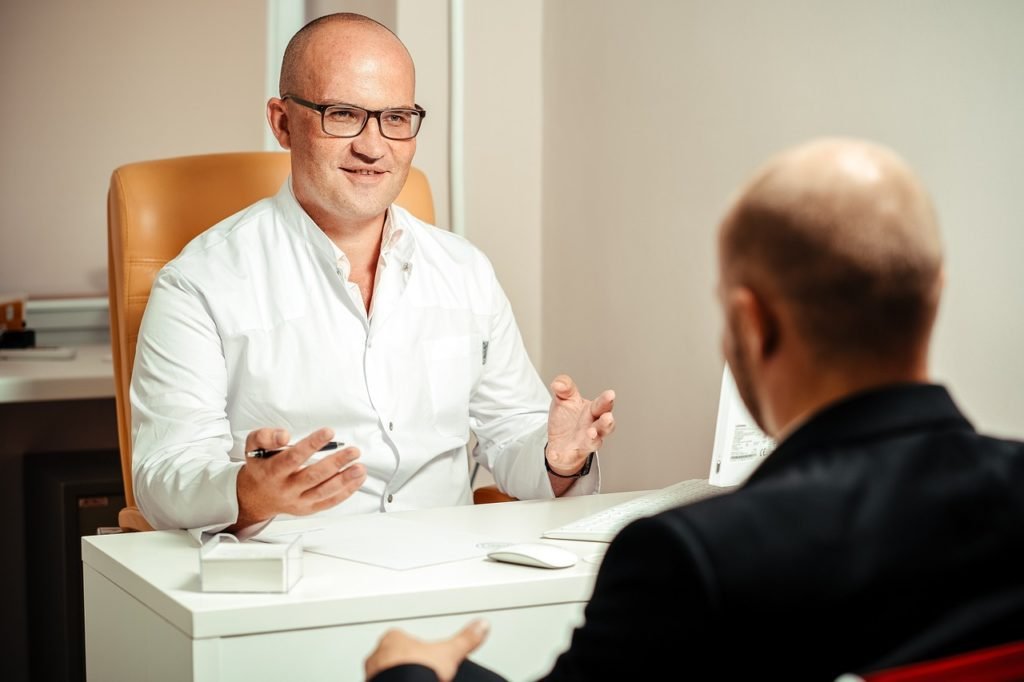1. How Does Sexual Frustration Impact Mental Health?
When it comes to our overall well-being, it’s crucial to recognize that our mental health is just as important as our physical health. One aspect of mental health that often goes unnoticed is the impact of sexual frustration. While it may not be a widely discussed topic, understanding the effects of sexual frustration on our mental well-being is essential.
Sexual frustration can arise from various factors, including a lack of sexual activity or satisfaction, difficulty in maintaining intimate relationships, or unfulfilled sexual desires. These feelings can lead to increased stress, anxiety, and even depression. It’s crucial to address and manage sexual frustration to maintain optimal mental health.
One way sexual frustration can impact mental health is through decreased self-esteem. When individuals feel unsatisfied or lacking in their sexual lives, they may begin to question their desirability or worthiness. This negative self-perception can lead to feelings of inadequacy, contributing to a decline in overall mental well-being.
Additionally, sexual frustration can disrupt interpersonal relationships. When individuals are constantly grappling with unaddressed sexual needs, it’s common for tension and resentment to build up, affecting their interactions with others. These strained relationships can further exacerbate feelings of loneliness, isolation, and worsen mental health symptoms.
In conclusion, sexual frustration can have a significant impact on mental health. It’s vital to acknowledge and address this issue to maintain optimal well-being. By recognizing the potential negative effects and seeking appropriate support and guidance, individuals can navigate their sexual frustrations and experience improved mental health outcomes.
2. Recognizing the Signs of Anxiety Linked to Lack of Sexual Intimacy
Anxiety is a common and debilitating mental health issue that can have a significant impact on our overall well-being. However, one often overlooked cause of anxiety is a lack of sexual intimacy in our relationships. When we think about anxiety, we typically associate it with stress, work, or social situations. But the truth is that our intimate relationships can also play a significant role in our mental health.
Sexual intimacy is a fundamental aspect of a healthy relationship. It not only brings about physical pleasure but also fosters emotional connection and intimacy between partners. When this intimate connection is lacking or non-existent, it can often lead to feelings of anxiety and unease.
So, how can we recognize the signs of anxiety linked to a lack of sexual intimacy? It’s important to pay attention to both physical and emotional manifestations. Physical signs can include restlessness, difficulty sleeping, or even changes in appetite. On an emotional level, individuals may experience increased irritability, a constant sense of worry, or a general feeling of uneasiness.
If you are experiencing any of these symptoms, it’s essential to address the issue with your partner and seek professional help if needed. Remember, sexual intimacy is a vital component of a healthy relationship, and neglecting it can have severe consequences for both your mental and emotional well-being.
3. Coping Strategies for Managing Anxiety Due to Lack of Sexual Activity
If you’re experiencing anxiety due to a lack of sexual activity, it’s important to remember that you’re not alone. Many individuals go through periods of low sexual activity, whether it’s due to external factors or personal circumstances. The key is to find healthy coping strategies to manage this anxiety and maintain your overall well-being.
One effective strategy is to focus on self-care. Engaging in activities that bring you joy and help you relax can help reduce anxiety. Take time to pamper yourself with a bubble bath, practice deep breathing exercises, or indulge in a favorite hobby. By prioritizing self-care, you can cultivate a positive mindset and alleviate stress related to sexual activity.
Another helpful coping strategy is to communicate openly with your partner, if applicable. Discussing your feelings and concerns can help alleviate anxiety and strengthen your relationship. It’s important to remember that sexual activity is just one aspect of a fulfilling partnership, and there are numerous ways to maintain intimacy and connection with your loved one.
Lastly, seeking support from a professional therapist or counselor can be highly beneficial. They can provide guidance, tools, and techniques to help manage anxiety related to lack of sexual activity. Therapy can also address any underlying issues that may be contributing to your anxiety, allowing you to work towards long-term solutions.
4. Seeking Professional Help: Therapy and Counseling Options
When facing challenging situations in life, sometimes we need a helping hand to guide us through. Seeking professional help through therapy and counseling options can provide a safe and supportive environment for individuals to heal and grow.
Therapy is a valuable resource that allows individuals to explore their thoughts, emotions, and behaviors in a confidential setting. Whether dealing with anxiety, depression, or relationship issues, therapy offers a non-judgmental space to address and work through these challenges.
Counseling, on the other hand, focuses on specific issues and provides guidance and support to individuals in need. From grief counseling to career counseling, these specialized services offer expert advice and strategies to help individuals navigate through difficult times.
By seeking professional help, individuals can gain a deeper understanding of themselves and develop effective coping mechanisms. With the guidance of a licensed therapist or counselor, they can work towards personal growth, building resilience, and ultimately finding a path towards a happier and healthier life.
Remember, taking the step to seek professional help is not a sign of weakness but rather a courageous act of self-care. If you or someone you know is struggling with any aspect of life, consider reaching out to therapy and counseling options to embark on a journey of healing and self-discovery.
5. Exploring Healthy Alternatives: Channeling Sexual Energy into Self-Care
Cuando se trata de cuidado personal, es importante explorar alternativas saludables para canalizar la energía sexual. En lugar de permitir que esta energía se disperse o se desvíe hacia comportamientos poco saludables, es fundamental encontrar formas de utilizarla de manera positiva.
Una opción viable es enfocarse en el autocuidado. Aprovechar esta energía para desarrollar una rutina de cuidado personal puede brindar beneficios tanto físicos como mentales. Desde dedicar tiempo a meditar y practicar yoga hasta hacer ejercicio regularmente, hay muchas formas en las que se puede aprovechar esta fuerza interna para promover el bienestar general.
Además, es esencial considerar la importancia de una buena alimentación. Dirigir la energía sexual hacia una mejor nutrición puede resultar en un aumento de la vitalidad y energía en general. Consumir alimentos ricos en nutrientes y evitar aquellos que contienen aditivos y productos químicos puede ayudar a mantener un equilibrio óptimo en el organismo.
Por último, no subestimes el poder de la creatividad. La energía sexual puede ser canalizada hacia la producción artística, ya sea escribiendo poemas, pintando o practicando otros tipos de expresión creativa. Esto no solo proporciona una salida constructiva para la energía, sino que también puede ser una fuente de satisfacción y crecimiento personal.
En resumen, es importante considerar la importancia de canalizar la energía sexual hacia el autocuidado, la buena alimentación y la creatividad. Al hacerlo, se puede aprovechar esta energía de manera positiva y brindar beneficios significativos para el bienestar general.

Psicólogo clínico que le apasiona ayudar a las personas a mejorar su bienestar emocional y a superar sus dificultades. Le encanta compartir sus conocimientos, experiencias y consejos sobre temas relacionados con la psicología, como la autoestima, la ansiedad, las relaciones, el estrés, la felicidad y mucho más.





